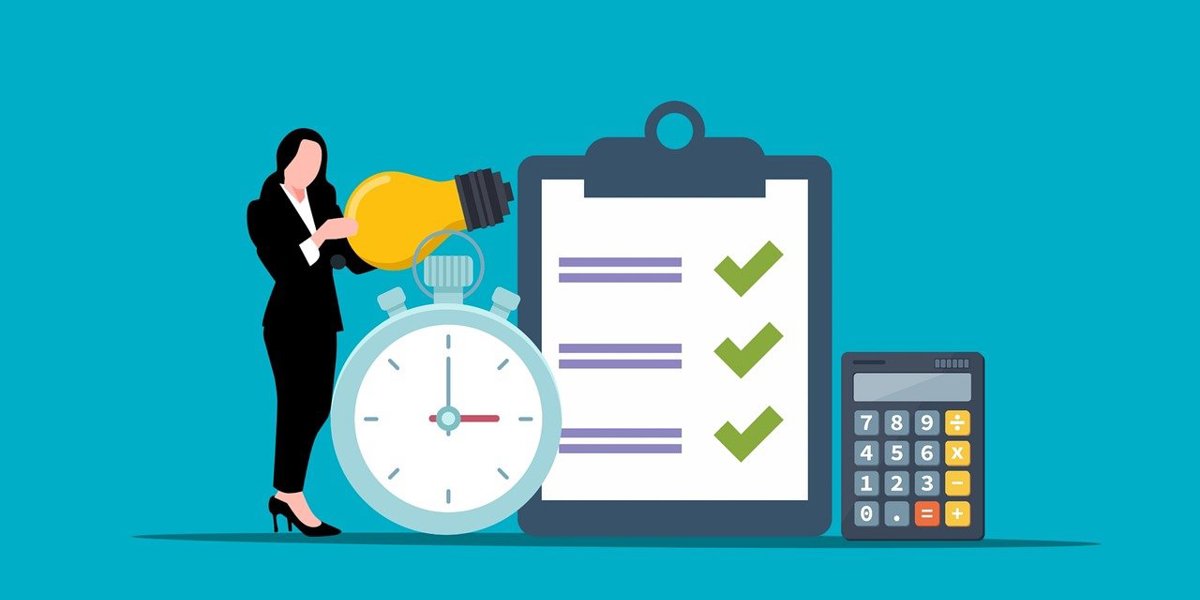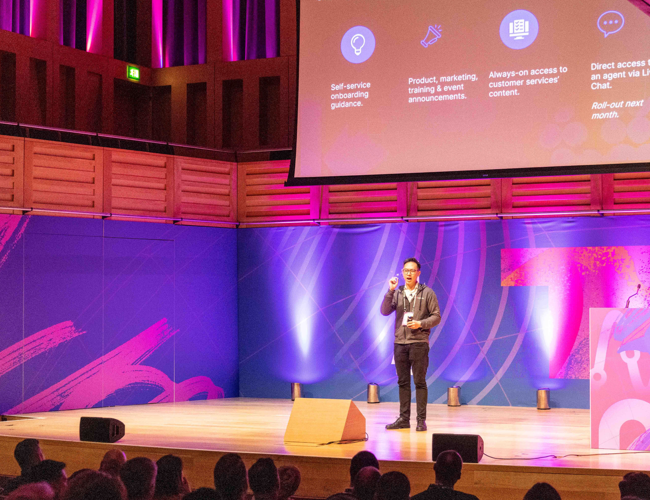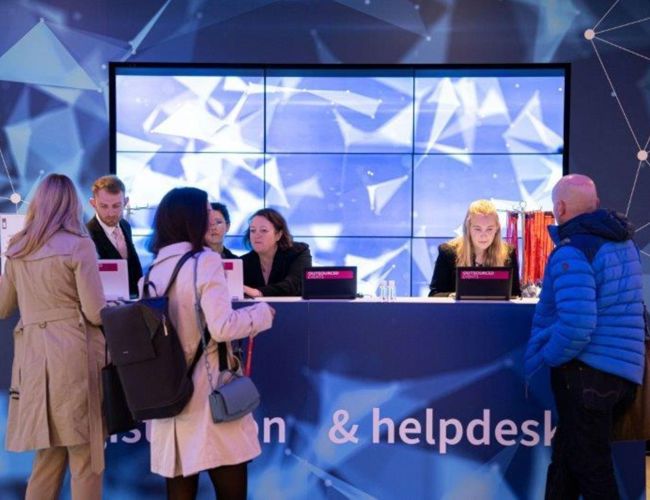What are the 5 Stages of Event Management?

What are the 5 Stages of Event Management?
Managing professional conferences or B2B (Business-to-Business) events is a complex process that requires thorough planning, seamless execution, and detailed follow-up. These events, whether they are conferences, tradeshows, seminars, or corporate meetings, serve as crucial platforms for networking, knowledge sharing, and deal-making. The success of an event relies on meticulous management through a defined event life cycle. Below, we explore the five key stages of the event management process for professional conference and B2B events and how each contributes to delivering a successful, professional experience.
1. Initiation: Defining Event Goals and Stakeholders
The Initiation stage sets the foundation for the entire event. This phase involves defining the event's purpose, understanding the business objectives, and identifying the needs of key stakeholders, including attendees, exhibitors, and sponsors. For B2B events or professional conferences, it's essential to focus on the goals that the event aims to achieve—whether it’s generating leads, fostering industry relationships, sharing the latest industry updates, educating members or launching new products. This stage also involves assessing the market demand and ensuring the event aligns with both the organisations strategy and the interests of the target audience.
Key activities in the Initiation stage for events:
· Establishing clear objectives and event goals for the organisation.
· Identifying key stakeholders (partners, sponsors, exhibitors, and delegates).
· Conducting a feasibility analysis, including market research.
· Developing an initial budget and timeframe.
· Securing buy-in from relevant internal and external stakeholders.
2. Planning: Comprehensive Planning and Defining KPI’s
Once the event concept is agreed, the Planning phase begins. This involves creating a comprehensive event project plan that addresses every detail, from logistics and venue selection to marketing and communications. The plan must focus on maximising return on investment (ROI) for exhibitors and sponsors, as well as ensuring that the event attracts the right audience. Detailed project timelines, resource allocation, and budgeting are crucial during this phase, as well as the development of Key Performance Indicators (KPIs) to measure success. A strong marketing and communications strategy is particularly vital for all B2B events and professional conferences to ensure the right message reaches the right people.
Key activities in the Planning stage for events:
· Creating a detailed event plan, covering timelines, logistics, and resource allocation.
· Budget management, including securing sponsorships and exhibitor fees.
· Coordinating with suppliers and booking the venue.
· Developing a targeted marketing and communications strategy.
· Managing delegate registration, including handling enquiries, visa support, and accommodation bookings.
· Defining KPIs to measure the event's success.
3. Execution : Event Management and Organisation
The Execution phase is where the planning comes to life. In B2B events and professional conferences, this means overseeing everything from delegate registration and exhibitor setup to ensuring that keynote speakers, workshops, and networking sessions run smoothly. It's important that every detail aligns with the pre-set objectives, whether it’s driving networking opportunities or ensuring high engagement with sponsors and exhibitors or educating the audience in an engaging and memorable way. Effective communication between the event management team, stakeholders, and suppliers is critical at this stage to avoid any last-minute problems.
Key activities in the Execution stage for events:
· Managing the event setup, including exhibitor stands, signage, and branding.
· Overseeing the registration process, ensuring a smooth check-in for delegates.
· Facilitating sessions, workshops, and networking opportunities.
· Coordinating with on-site teams, suppliers, and the venue to ensure seamless operations.
· Monitoring attendee engagement and providing support to exhibitors and sponsors.
4. Monitoring: Tracking performance and Identification of Improvements
Monitoring is an ongoing process that runs parallel to the Execution stage. During this phase, event managers track the event's progress and performance against the original plan, keeping a close eye on the KPIs established in the Planning phase. In events this may include tracking attendee engagement, lead generation for exhibitors, and sponsor visibility. By monitoring these metrics in real-time, event managers can make on-the-spot adjustments, whether that’s solving logistical issues or enhancing the attendee experience.
Key activities in the Monitoring stage for events:
· Tracking performance against KPIs, including attendee numbers, engagement levels, and exhibitor satisfaction.
· Monitoring the success of sessions, workshops, and networking events.
· Managing supplier performance.
· Identifying and addressing any deviations from the event plan.
5. Closure
The Closure stage is where the event is formally wrapped up. For B2B events and professional conferences, this involves a detailed analysis of the event's success, gathering feedback from delegates, exhibitors, and sponsors, and reviewing financial performance. Post-event debriefs are critical to assess what worked well and what could be improved for future events. This is also the time to formalise all post-event activities, such as returning equipment, settling outstanding payments, and providing sponsors and exhibitors with post-event reports.
Key activities in the Closure stage for events:
· Finalising post-event logistics, including breakdown and equipment returns.
· Conducting a financial review and managing outstanding payments.
· Collecting feedback from delegates, exhibitors, and sponsors via surveys or interviews.
· Delivering post-event reports to stakeholders, detailing the outcomes against KPIs.
· Conducting a post-event debrief to identify areas of success and opportunities for improvement.
6. Conclusion
Effective event management requires a clear understanding of each stage in the event management life cycle. From defining objectives in the Initiation phase to delivering a seamless event during execution and analysing results during Closure, each phase plays a crucial role in delivering a successful event. By following this event guide, event managers can ensure that their B2B events and professional conferences not only meet but exceed the expectations of their attendees, exhibitors, and sponsors, ultimately driving valuable business outcomes.
Want a quick visual summary of the key points covered in this article? Download our free infographic now to get all the insights in one easy-to-digest format!
Our Latest Knowledge & Insights

Outsourced Events recognised amongst UK's best workplaces
Outsourced Events has achieved exceptional rankings in the Best Companies 2025 lists, announced on 13th November, following our One Star 'Very Good Company’ to work for accreditation.
Read More
Outsourced Events achieves Science Based Targets initiative (SBTi) validation
Outsourced Events have committed to set near-term company-wide emission reductions in line with climate science from the Science Based Targets initiative (SBTi). The SBTi is a corporate climate action organisation that enables companies and financial institutions worldwide to play their part in combating the climate crisis.
Read More
Ask the tradeshow experts: A Q&A with the OE team
Tradeshows are powerful for lead generation and brand building, but maximising ROI requires strategic planning. Our experienced tradeshow managers share practical insights to transform your next exhibition.
Read More





